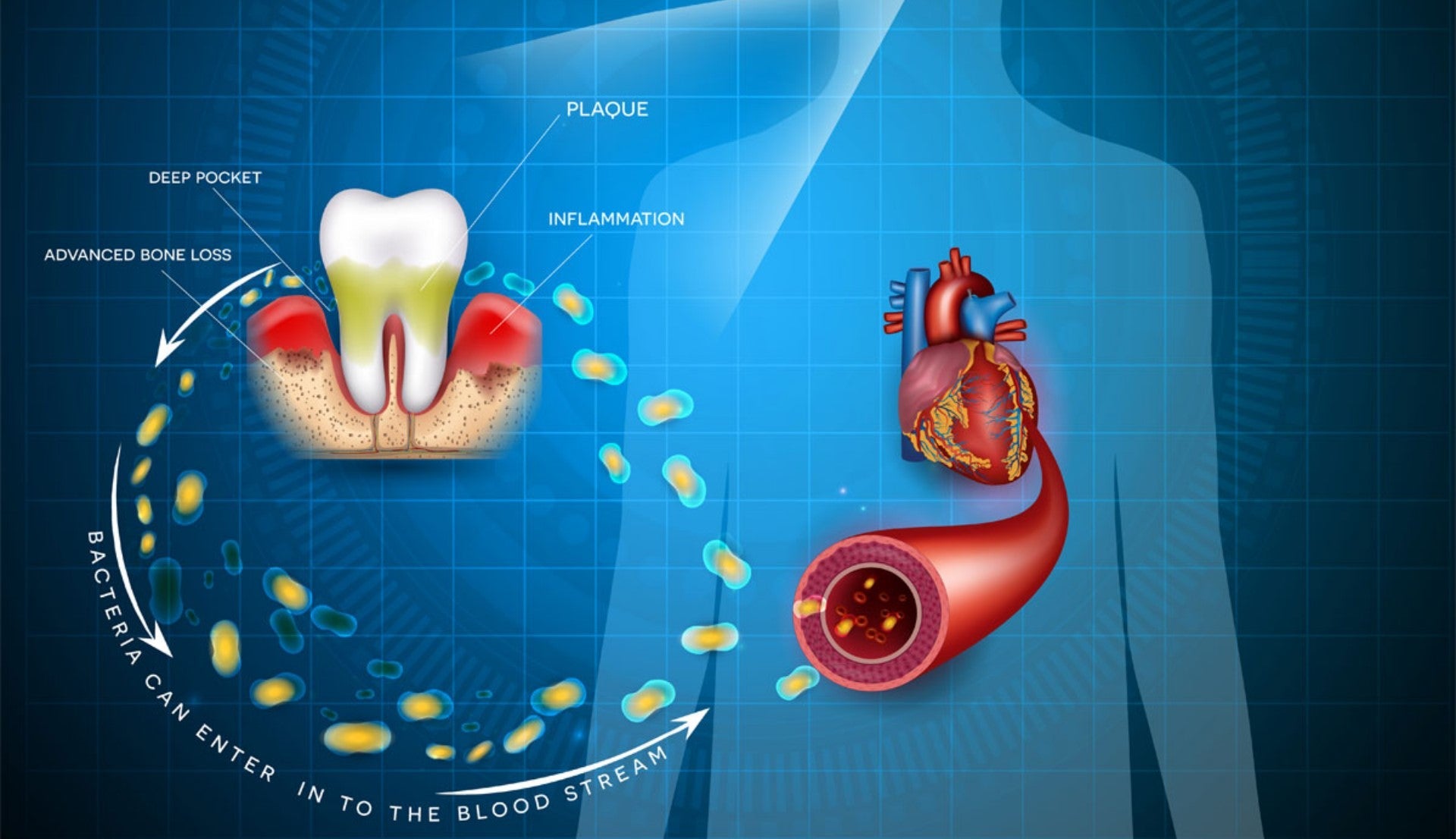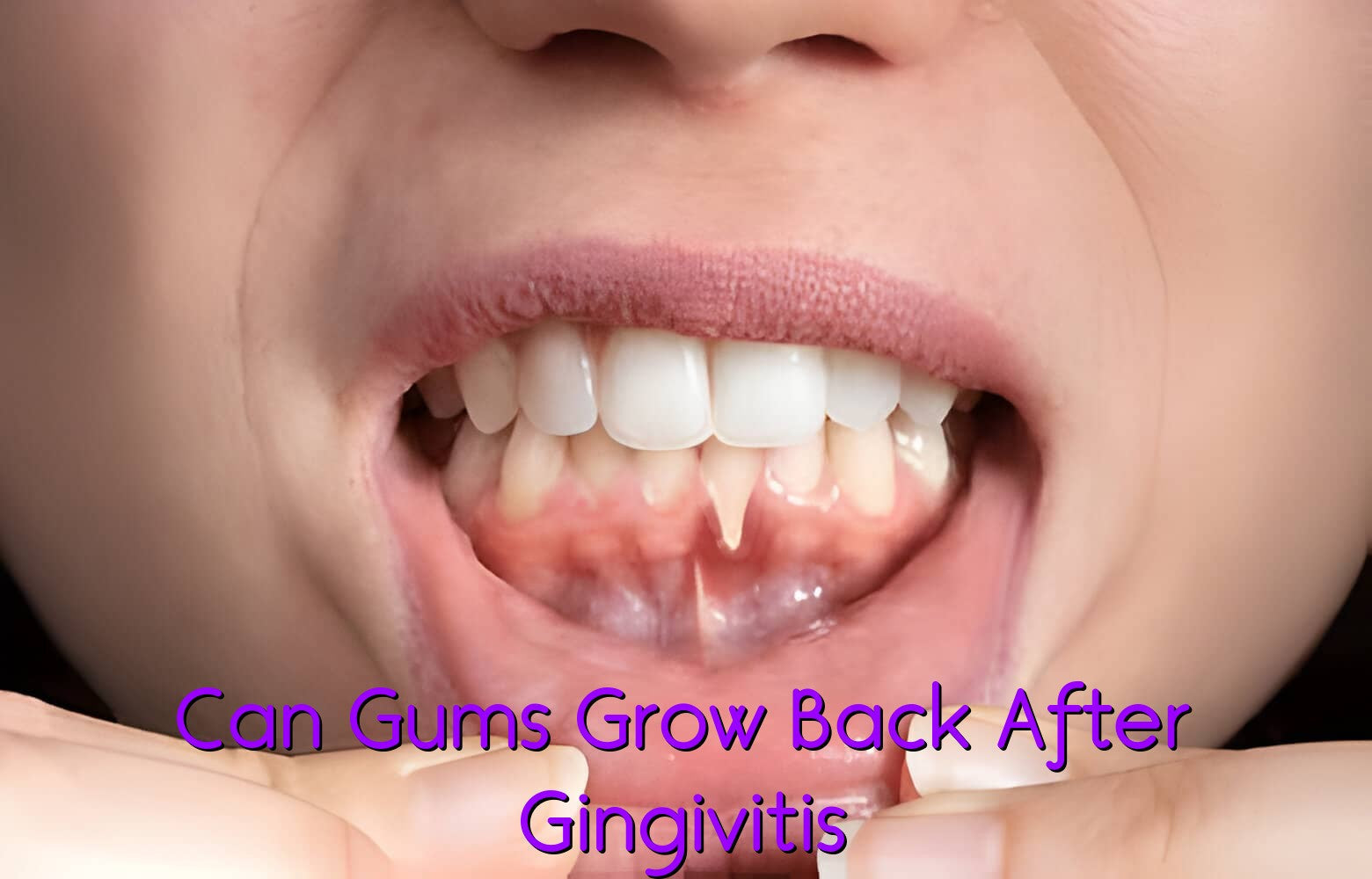Noticed a bit of blood when you brush? That pink tint swirling down the sink isn’t something to ignore. It’s often one of the first signs of gingivitis, an early-stage gum issue that way too many people overlook. You might feel some tenderness, maybe even a little swelling, but chalk it up to brushing too hard or skipping flossing once or twice.
The problem? Gingivitis doesn’t just go away on its own. Let it linger, and you could be looking at full-blown periodontitis, which is way more serious.
Now, here’s where the old-school advice kicks in. Everyone from your grandma to your dentist has probably mentioned it at some point: rinsing with salt water. But does salt water help gingivitis, really? Or is it just one of those feel-good remedies we cling to because it’s easy and cheap? Time to dig into what’s actually going on when you swish that salty mix around your mouth.
What Is Gingivitis? Symptoms And Causes Explained
Gingivitis is just a fancy name for early-stage gum disease. And it usually starts with something pretty ordinary: plaque. That sticky film that builds up on your teeth after you eat? If it’s not brushed and flossed away, it turns into a full-blown bacteria party.
How Your Gums React to Plaque Buildup
When plaque starts to pile up, it doesn’t just sit there quietly. The bacteria in it start releasing toxins that irritate your gums. Your body sees this as a threat and jumps into defense mode, sending white blood cells to the area. That’s when the swelling kicks in. Your gums get red, feel tender, and might bleed when you brush or floss. If you’ve been noticing any of that lately, it’s probably not a coincidence.
From Reversible to Risky: Gingivitis vs. Periodontitis
The good news? Gingivitis can be reversed. The bad news? If you ignore it, it can turn into something worse; periodontitis. That’s when your gums start pulling away from your teeth, creating pockets that trap even more bacteria. And once you get to that stage, things like bone loss and tooth mobility aren’t far behind.
So, where does the salt water trick come in? Many people start searching for simple remedies at the first sign of gum irritation and ask, does salt water help gingivitis? It’s a fair question, and one worth digging into if you’re hoping to keep things from escalating. Spoiler: rinsing isn’t a cure-all, but it might be more helpful than you think.
Does Salt Water Help Gingivitis? The Quick Answer
Does salt water help gingivitis, well, yes, but with reservations. Salt water may be used to relieve inflamed gums, low bacterial load, and healing. Though it is not a replacement for a professional treatment or a permanent solution.
What Salt Water Actually Does
Salt is antiseptic in nature. When you mix it in warm water, it forms a hypertonic place which could extract fluids and toxins in inflamed tissue. This decreases swelling and it may offer temporary relief. It also assists in restoring the PH ratio on the mouth rendering it un-friendly to the bad germs.
Immediate Benefits You Might Notice
- Reduced swelling and pain
- Less bleeding after brushing
- Cleaner mouthfeel after meals
- A short-term decrease in gum sensitivity
How Salt Water Helps in the Early Stages of Gingivitis
In the early phases of gingivitis - think redness, minor swelling, and bleeding while brushing, salt water rinses can provide noticeable relief. It may not tackle the root cause (like plaque buildup), but it does interrupt the cycle of inflammation and swelling. This gives your gums a chance to begin healing, especially when combined with improved brushing and flossing habits.

Limitations of Salt Water Rinsing
It won’t remove plaque or tartar. It doesn’t rebuild damaged tissue. And if the cause of your gingivitis is poor oral hygiene or underlying health issues, you’re just masking symptoms.
What Salt Water Can't Do
- Reverse gum recession
- Remove hardened tartar from below the gumline
- Replace brushing and flossing
- Treat advanced gum infections
So, does salt water help gingivitis in a meaningful way? Yes, it’s a solid first step—but not the finish line. Yes, but with caveats. Salt water can help soothe inflamed gums, reduce bacterial load, and promote healing. But it's not a substitute for professional treatment or a long-term fix.
Why Salt Has Been Used For Oral Health For Centuries
Salt Water Isn’t New - It’s Been Around for Ages
Long before modern mouthwashes hit the shelves, people were already using salt to clean wounds - including the ones in their mouths. Ancient Egyptians, Greeks, and Romans all leaned on salt for its natural antiseptic properties. In both Chinese and Ayurvedic medicine, salt has been used for centuries to balance bacteria in the mouth and cool down inflammation. So, if you're wondering “does salt water help gingivitis”, you’re definitely not the first person to ask.
Why Salt Actually Does Something
Salt isn’t just there for comfort, it actually does a bit of work. It’s mildly antibacterial, meaning it can slow the growth of harmful bacteria without wiping out the good stuff entirely. It helps by pulling moisture out of bacteria cells and neutralizing the acids in your mouth that can wear down enamel. So while it’s not some miracle cure, it does offer a gentle boost in keeping your gums calm and clean.
Warm Salt Water > Cold Salt Water (Here’s Why)
If you’re going to use salt water, make sure it’s warm, not ice cold from the tap. Warm water dissolves the salt completely, making it more effective. Plus, it’s just more soothing on irritated gums and helps dislodge any gunk stuck between your teeth. So yes, if you’re going the salt water route, do it right. And again, does salt water help gingivitis? In the early stages, it absolutely can lend a hand. Just don’t expect it to do all the heavy lifting on its own.
How to Actually Use Salt Water for Gingivitis Relief
So now that we’ve figured out the answer to the question “does salt water help gingivitis”, let’s talk about how to actually use it the right way. It’s simple stuff, but doing it wrong can cancel out the benefits.
The Recipe: Don’t Overthink It
All you need is ½ teaspoon of salt mixed into one cup of warm water. That’s it. If you’ve got sea salt or Himalayan salt on hand, great - those come with some trace minerals. But regular table salt works fine, too. The key is warm water. Not boiling, not cold, just comfortably warm so it fully dissolves and doesn’t shock your gums.
How Often Should You Be Doing This?
Stick to 2–3 times a day, max. More than that, and you might actually dry your mouth out or irritate your gums further. This is a support move, not a main act. Rinse after brushing, after eating, or when your gums feel extra sensitive.
Swish Smart, Don’t Guzzle It
Swish the mix around for 30 seconds to a minute. Focus on getting it into those tight gum areas. Then spit it out. Don’t swallow it - this isn’t a health tonic; it’s a rinse.
What Not to Do
- Don’t overdo the salt. More salt doesn’t mean more healing, it can backfire and dry your mouth out.
- Don’t skip brushing and flossing. Salt water is just one tool. If you’re using it as an excuse to avoid proper hygiene, you’re doing more harm than good.
- Don’t rinse 10 times a day. Over-rinsing throws off the balance of your oral microbiome, and your gums need that balance to heal.
Bottom line? Does salt water help gingivitis? Yes, but only when used correctly and alongside actual oral care. Think of it as your backup, not your entire game plan.
|
Salt Type |
Recommended Amount |
Effectiveness |
|
Table Salt |
½ tsp per cup warm water |
Mild relief |
|
Sea Salt |
½ tsp per cup |
Better mineral profile |
|
Himalayan Salt |
½ tsp per cup |
Most natural, gentle |
But while salt water is helpful, it’s not a standalone cure. If your gums are still bleeding, inflamed, or painful - you may need a more potent, yet natural, solution.
When Salt Water Isn’t Enough: Recognizing the Red Flags
Salt water can do a lot, but it can’t do everything. If you've been consistent with salt water rinses and still notice nagging symptoms, your gingivitis might be more advanced than you think. And that’s when you need to pay attention to the red flags.
Gum Recession and Tooth Sensitivity
One of the earliest signs that salt water isn’t enough is gum recession. If your teeth are looking longer than usual or you feel a sudden jolt of pain when sipping hot or cold drinks, your gums are pulling back. This isn't something a salt rinse can reverse.
Gum recession exposes the sensitive roots of your teeth, which are not protected by enamel. The result? Increased sensitivity, risk of decay, and even loose teeth down the line. Salt water may temporarily reduce inflammation, but it won’t stimulate tissue regrowth.

Persistent Bad Breath
Another red flag is chronic bad breath that doesn't improve even after salt rinses. That unpleasant odor is often caused by bacteria festering below the gumline - bacteria that salt water simply can’t reach. If your breath is still foul after days of rinsing, it’s time to consider deeper solutions.
When Salt Water Isn’t Cutting It Anymore
A little gum bleeding when you brush? Sure, it happens - especially in the early stages of gingivitis. And most of the time, if you clean things up with better brushing and flossing, it goes away. But if the bleeding keeps coming back, or worse, happens even when you’re not brushing? That’s a red flag. Persistent pain, tenderness, or swelling for weeks on end isn’t just mild irritation - it’s likely a deeper infection that salt water alone won’t fix.
Loose Teeth? That’s a Big Deal
Let’s be clear: your teeth aren’t supposed to wiggle. If they start feeling a little mobile when you chew or notice they’re shifting slightly, it’s not just in your head. That usually points to something more serious, like bone loss around the tooth roots. And at that point, no matter how often you rinse, the answer to does salt water help gingivitis becomes a hard no - it’s just too late for that to make a difference.
When It’s Time to Step Things Up
If these symptoms sound familiar, it’s time to stop relying on home remedies alone. Salt water can still play a supporting role, but it shouldn’t be your main strategy anymore. You’ll want something more targeted, like The Goodbye Company’s Gum Disease formula.
This stuff is loaded with omega-3 and 9 oils and powered by ingredients like clove and neem. It’s all-natural but doesn’t mess around, it helps calm the inflammation, supports your oral microbiome, and gets to the root of the problem. Basically, it steps in when salt water taps out.
Introducing The Goodbye Company Gum Disease Formula
There’s a reason holistic dentists and natural health practitioners recommend The Goodbye Company Gum Disease solution. It’s not just another mouthwash. It’s a nutrient-dense, oil-based formula that targets inflammation, bacterial imbalance, and tissue healing.
Omega 3 & 9 Oils
These fatty acids help calm inflammation and nourish gum tissue.
Neem and Clove Essential Oils
Neem is antibacterial and antifungal. Clove oil is known for its numbing and healing properties. Together, they create a potent synergy.
Who Should Use It?
If you have:
- Bleeding gums
- Pain while brushing
- Sensitivity to cold or hot foods
- Loose teeth
...then it’s time to introduce this into your daily oral care routine. This is the best natural gum disease cure out there.
What Research Says About Salt Water For Gingivitis
Small Clinical Studies, Modest Results
Some studies suggest salt water rinses reduce gingival inflammation and bleeding scores. However, the results are modest compared to medicated rinses like chlorhexidine.
Isotonic vs Hypertonic Solutions
A hypertonic salt solution (more salt than your body fluid) draws out water from bacteria and gum tissue, reducing swelling. Isotonic solutions are gentler but less effective.
Salt Water vs Chlorhexidine or Hydrogen Peroxide
Salt water has fewer side effects. Medicated rinses can cause staining and alter taste. But they’re more effective for advanced cases.
The Bottom Line
Salt water helps, but only up to a point. It’s a mild intervention, best paired with other therapies like The Goodbye Company formula.
Natural Remedies That Work Alongside Salt Water
Oil Pulling
Swishing coconut or sesame oil for 15-20 minutes pulls bacteria from the gums. Clove oil can be added for anti-inflammatory effect.
Turmeric Paste
Apply turmeric mixed with water and a pinch of salt to your gums. Anti-inflammatory and antibacterial.
Aloe Vera Gel
Rub onto your gums for a cooling effect. Supports healing.
Green Tea Rinse
Polyphenols in green tea reduce inflammation and fight plaque-causing bacteria.
Pro Tip: The Goodbye Company formula combines the power of multiple remedies - essential oils, fatty acids, and botanicals - in one blend.
What to Avoid When Using Salt Water For Your Gums
Too Much Salt
Over-concentration can irritate soft tissues and cause oral dryness.
Skipping Daily Hygiene
Rinsing is not a replacement for brushing or flossing. Salt water doesn’t remove plaque.
Assuming All Gum Issues Are Gingivitis
If symptoms persist or worsen, see a dentist. It could be periodontitis or another condition.
The Ideal Oral Care Routine For Gingivitis Prevention
Morning Routine
- Brush with a soft-bristle toothbrush
- Rinse with warm salt water or Goodbye Company formula
Midday Boost
- Salt water rinse after lunch
- Use dental floss or interdental brush
Nighttime Deep Clean
- Brush thoroughly
- Rinse with The Goodbye Company solution
- Avoid sugary foods before bed
So, does salt water help gingivitis if used daily alongside good brushing and natural products? Absolutely. But only as part of a full care routine.
Real People, Real Results: What Our Users Say
“I used salt water for weeks but didn’t see real improvement until I added Goodbye Company’s formula. Now my gums don’t bleed at all.” - Samantha.
“I love that it’s natural. The clove oil gives an instant soothing feel. Highly recommended for sensitive gums.” - Amanda.
“Better than anything I’ve tried. Salt water helps, but this is what healed my gum pain.” - Emily.
FAQs: Salt Water & Gingivitis
Can salt water replace mouthwash for gingivitis?
It can provide relief but won’t remove plaque or tartar. Use it alongside brushing, flossing, and a natural solution like The Goodbye Company’s formula.
How long does it take for salt water to help my gums?
You might feel relief after a few days, but visible improvements can take 1-2 weeks with consistent use.
Does salt water kill gingivitis bacteria?
It reduces bacterial load but doesn't sterilize the mouth. It helps manage, not eliminate, bacteria.
Can I use sea salt instead of table salt?
Yes. Sea salt contains additional minerals and is less processed.
Is salt water safe for sensitive gums?
Yes, when used in proper concentration. Overuse or too much salt can be irritating.
Can kids use salt water for gum problems?
Yes, but supervise to avoid swallowing.
Will salt water help with bleeding gums after brushing?
It can reduce inflammation, but persistent bleeding needs a deeper fix.
Why does my dentist still recommend medicated rinses if salt water works?
Because salt water is a mild remedy. Medicated rinses are stronger, especially in advanced gum disease.
Outlook
Yes, it does. Salt water can soothe, cleanse, and reduce inflammation. But it’s not a miracle fix.
For mild cases, it can be enough when paired with good hygiene. For ongoing or more severe gum problems, it’s time to step up your game.
Add The Goodbye Company Gum Disease formula into your daily oral care routine. Let salt water be your backup, not your only tool.
So if you’re still wondering, does salt water help gingivitis? It certainly helps - but for full, lasting results, go beyond the rinse.










